An all-inclusive experience, redefined…At Bawah Reserve in Indonesia’s pristine Anambas...
Begin your day at Bawah Reserve with your choice from our Juice Butler service: fresh...
If you’ve noticed the beautifully patterned fabrics in your villa, you’ve already...
Ready to make a splash?For guests who are both swimming-fit and up for a challenge,...
Welcome to the thermal contrast therapy facility at Aura Sanctuary at Bawah Reserve,...
Planning your dream private island holiday in Indonesia? Here at Bawah Reserve, we...
3 ways to repost or use our Instagram Reels
We love that you want to share a little...
2024 wellness trends were exciting for sure, but it keeps getting better! The top...
A new subtle yet powerful trend - that of being “demure” and “mindful” - has been...
When we think of bees, honeybees often come to mind. However, at Bawah Reserve, a...
In the heart of Southeast Asia lies a hidden gem that promises a retreat into nature,...
It’s safe to say that if you ask someone to name a tropical island destination, they will...
As we step into 2024, the world of well-being is teeming with transformative trends that...
2 years ago for Earth Day 2022, we created 10 sincere pledges for investing in the planet...
Starting to plan your dream wedding? Some couples have a clear idea of their perfect...
We are often asked about the best time of year to schedule a trip to Bawah Reserve.Which...
Our faraway paradise is well worth the journey and there are many ways to get to Bawah,...
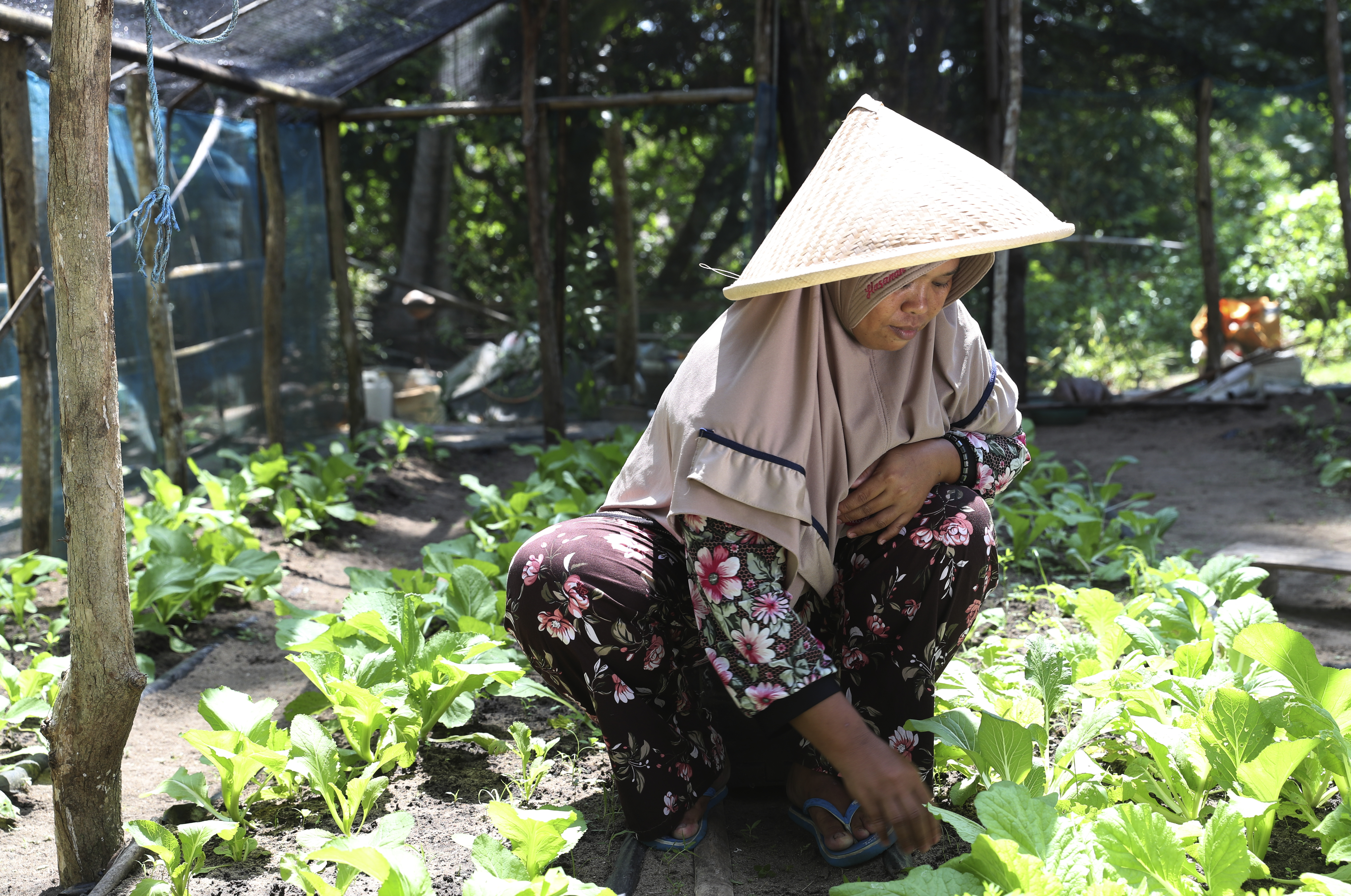
After starting the new year in high gear, in the second term of 2021 we had to slow down our work because of a few bumps in the road along the way and the rising cases of COVID-19 that led the Indonesian government to impose Emergency Public Activity Restrictions in many regions, including Anambas Islands.
Despite these setbacks, we made progress and created new initiatives. We also welcomed our two former Marine Conservation interns as full-time employees and added two new local interns in Kiabu and Tiangau, South Tarempa.
Below are the highlights of the second term of 2021.
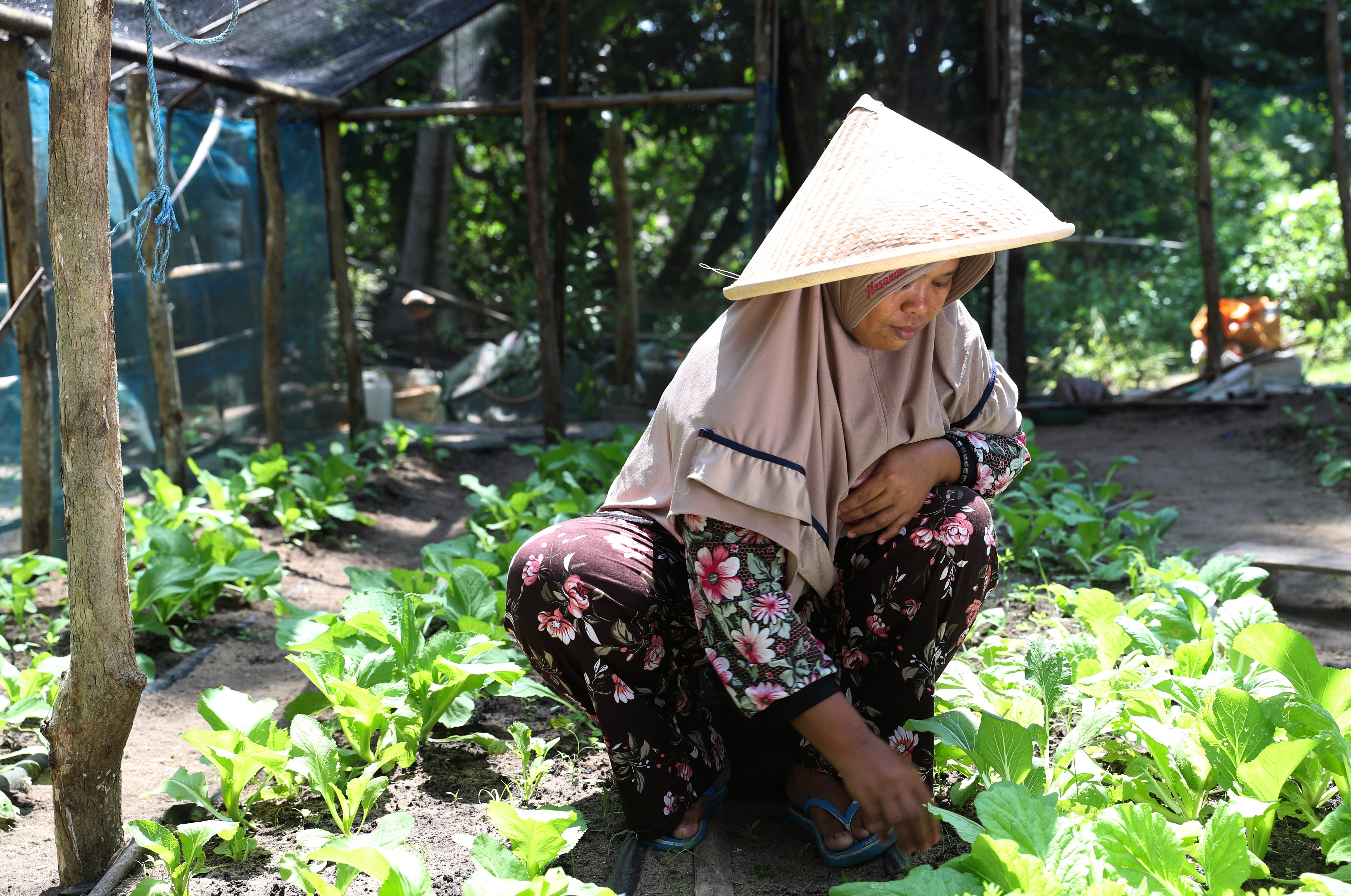
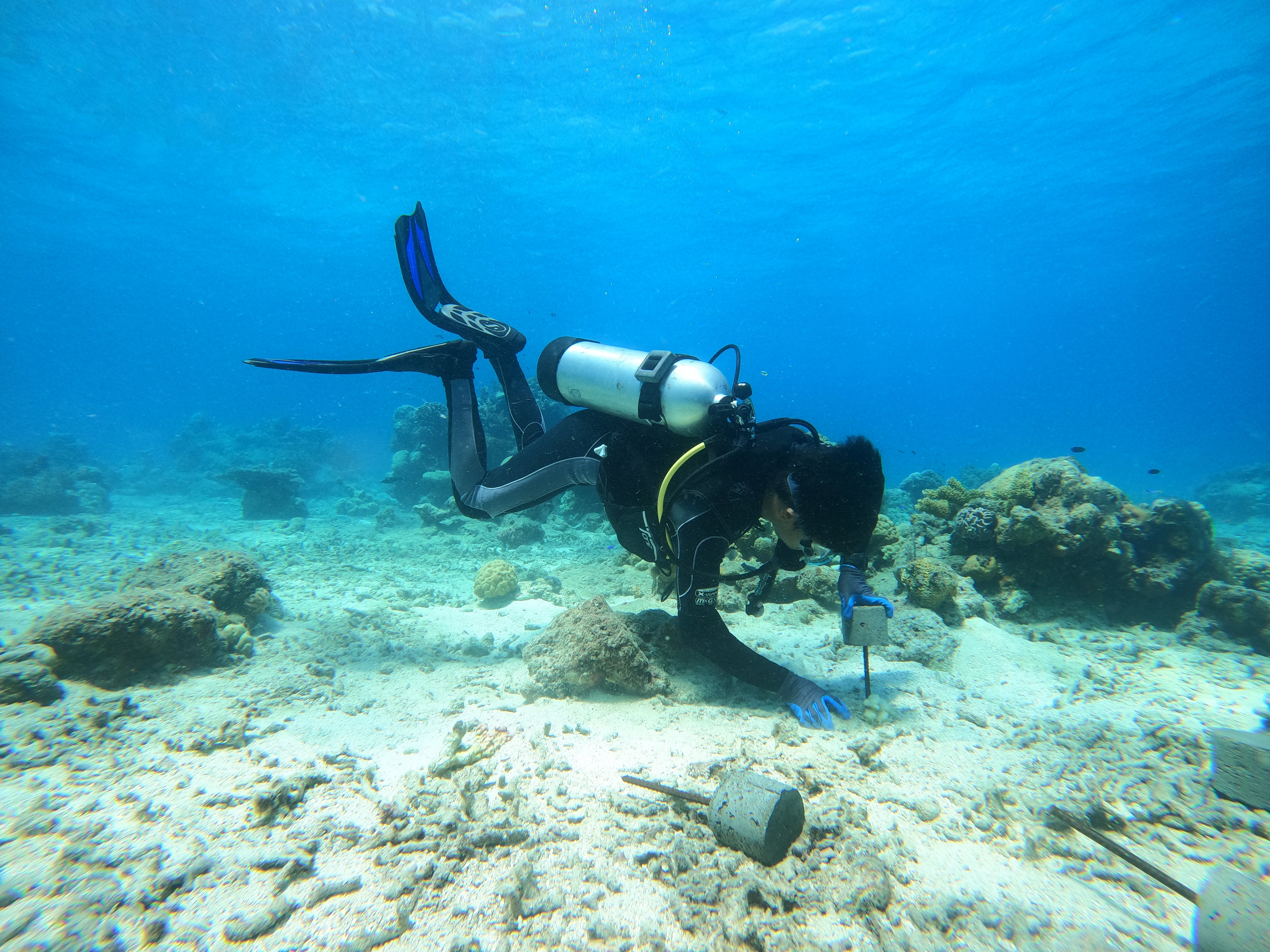
Throughout the second term of 2021, the Marine Conservation programme focused on four activities: reef restoration, mangrove conservation, marine debris data collection and shark data collection.
For reef restoration, the team created a new type of artificial reef, called bored pile corals, with a design that followed the ocean floor features in the Kiabu region. We are currently testing two different types of bored pile corals: one made from concrete, the other from coconut shells. For this research, they are placed in four different locations (north, south, west, and east), and the team will be monitoring their progress for up to a year.
Marine debris and shark data collection went as planned, both in Kiabu Village and Bawah Island. In August, the start of the high tide season impeded these activities. It was difficult for our team to get to the data collection site by boat, and the mackerel tuna required for the Baited Remote Underwater Video activity was out of stock in Kiabu because the local fishermen couldn’t go fishing during the challenging weather.
As for mangrove conservation, the team on the ground planted a total of 400 mangroves in Kiabu
mangrove rehabilitation area.
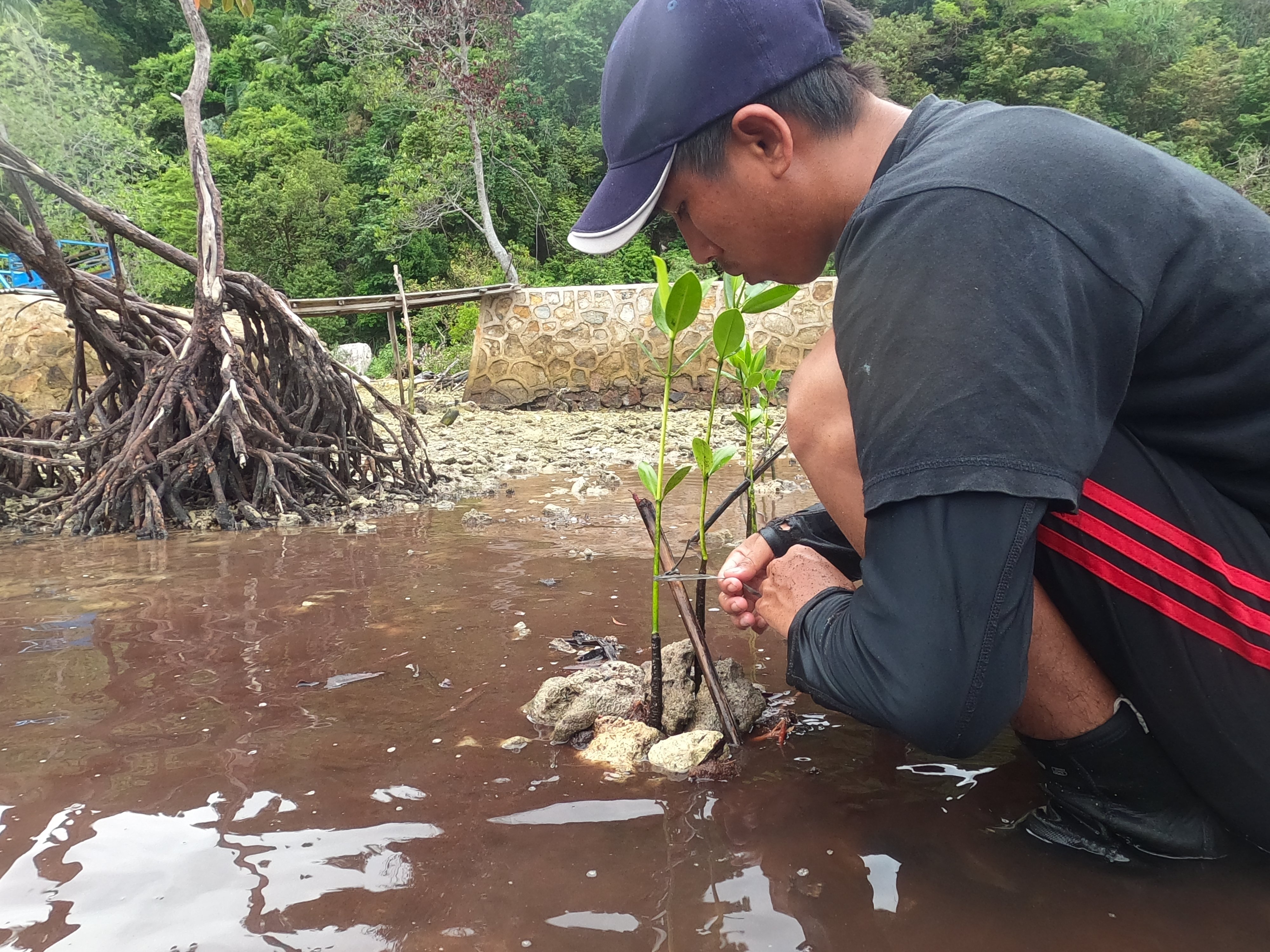
We also completed the rumpon (fish aggregating device) project funded by Seastainable Co. In
addition, we received another grant for the Kiabu Coral Rehabilitation Project from the Sustainable Ocean Alliance (SOA).
DEC classes, both in South Tarempa and Tiangau, had to be shut down in May due to the rising COVID-19 cases in the Anambas Islands.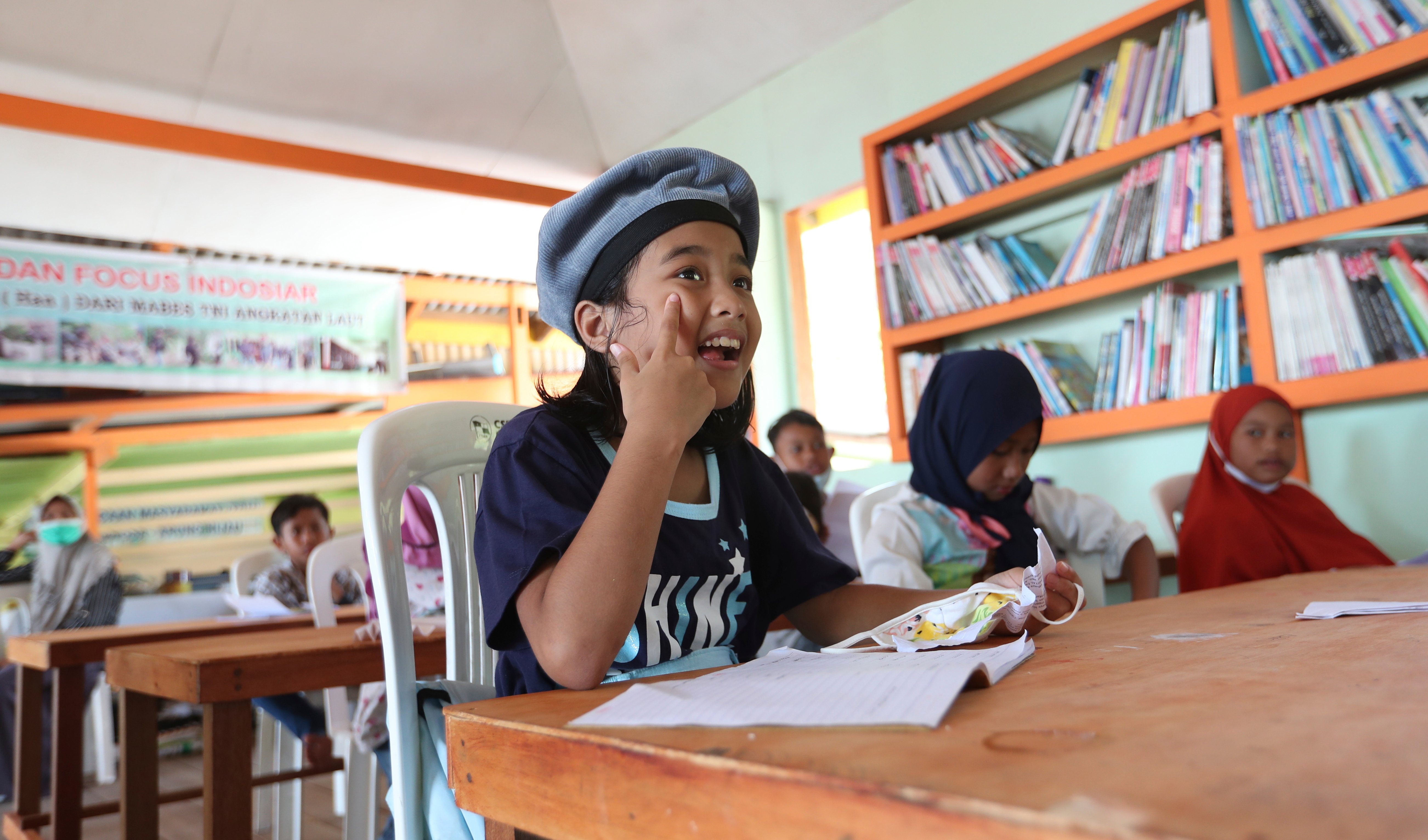
When the DEC resumed in June, the South Tarempa chapter had fewer students than before, but
the Tiangau chapter welcomed more students than the previous term. We even squeezed in a few
more students, though the class was already full to capacity. The DEC Tiangau class included students from grades 3 and 4, plus a number of additional grade 5 and 6 students who had not submitted their names during the admission period.
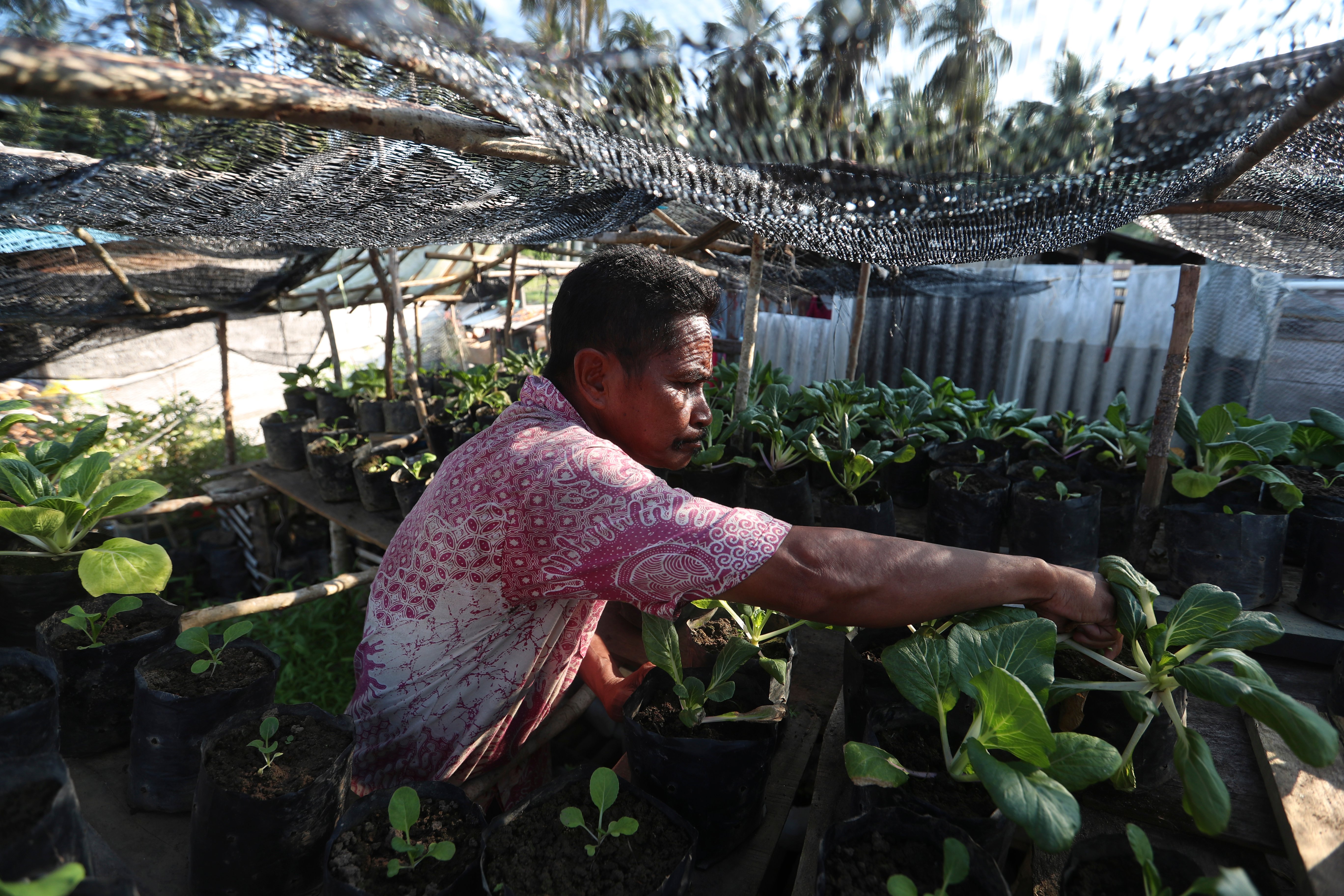
Pak Zairul and his family continued to take care of the Organic Farm in Telaga Village with the help of several farmers. This term, they diversified by growing new crops such as pumpkins.
Our Telaga Village Facilitator, Husni, implemented the Organic Home Farming initiative in his
own yard and encouraged others to do the same. As a result, a total of seven local farmers grew
chillies, pineapples, watermelons, and other fruits and vegetables in their yards, joining members
of the local Women’s Group who had been doing this for a while.
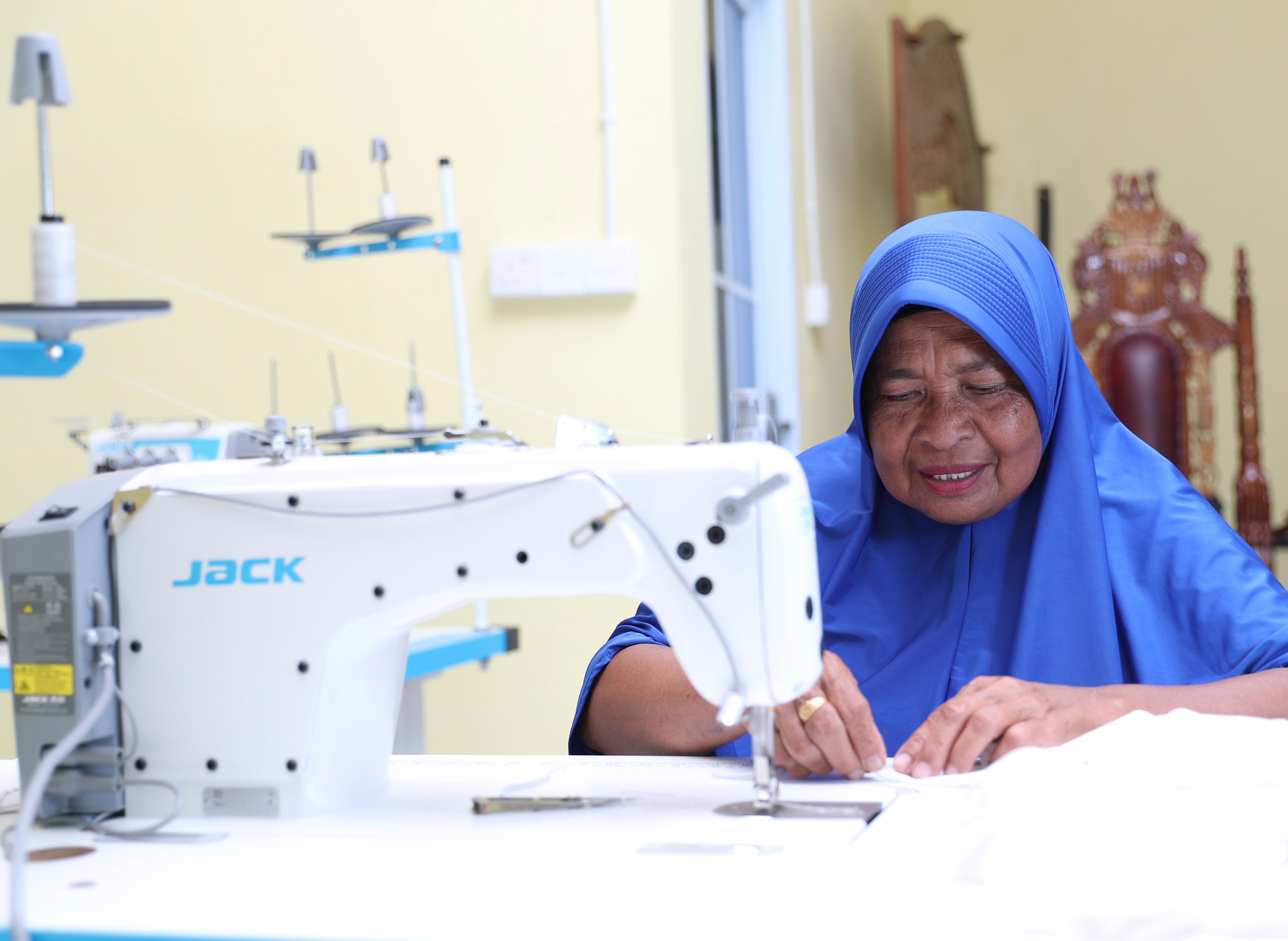
After the Hari Raya holiday in early May, five Kiabu village women began making reusable bags
from used fabrics and clothes. These materials came from their own closets and from our
donation drive. We asked them to make a total of 100 bags, meaning 20 bags each, by the end of
July. In early August, bought the bags back from them at IDR 10,000 (USD 0.69) each. We have
distributed these bags to the small kiosks in Kiabu as a way to reduce single-use plastic in the
village.
Following up on our presentation of sustainable menstruation in Term One, we distributed
questionnaires to the female students who had received a sample of either period underwear or a reusable pad. Read about the results.
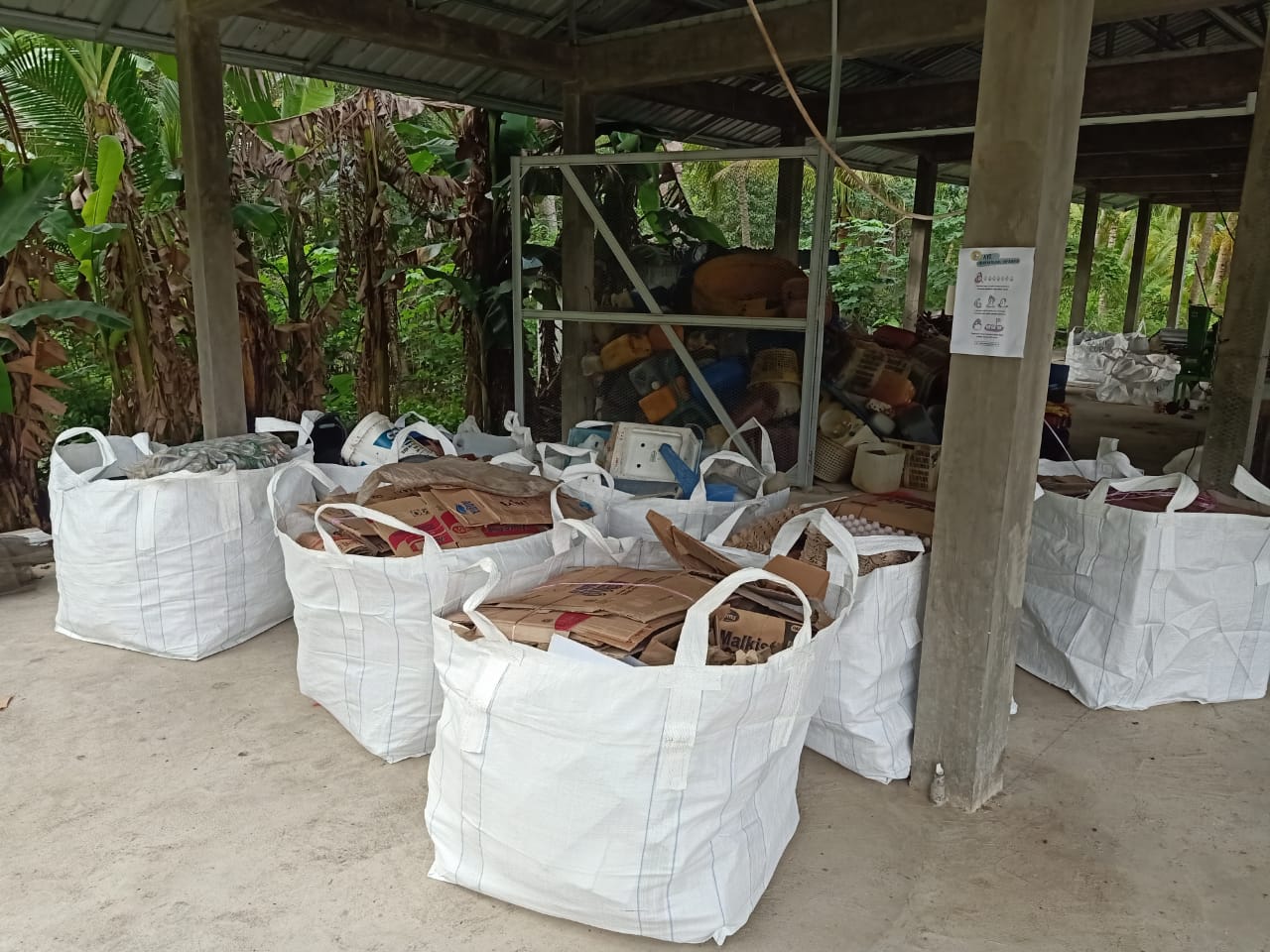
We initiated a Waste Bank (Bank Sampah) initiative in Kiabu Village so as to encourage the
local community to recycle and separate their waste. It’s worth noting that this is the first Waste
Bank in Anambas Islands.
The Waste Bank kicked off after the Hari Raya holiday, and is now held every Friday from
8.30am to 4pm at the Recycling Centre. How it works is that residents collect waste and separate it at home. They then bring the recyclable waste to the Recycling Centre to be weighed and valued, based on rates set by us. Each participant is given a Waste Bank logbook, where they can track the amount of waste they collect and the money they receive.
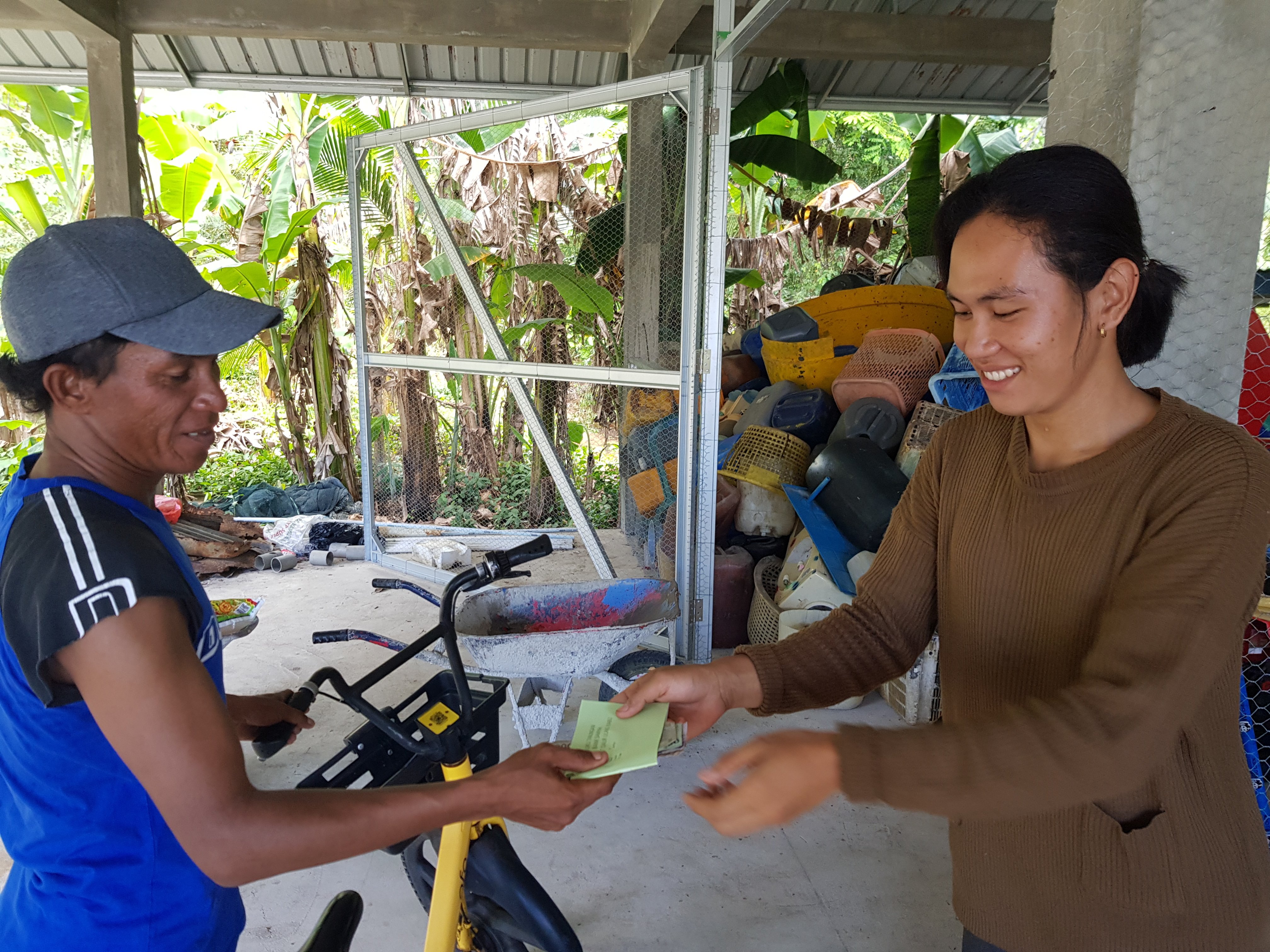
The Waste Bank has been running for more than three months, and it’s been well received by the
community. Some residents have even brought us hard plastic collected from marine debris. To
date, we’ve collected 3,865 kg of recyclable waste and paid out IDR 6,741,475 (about USD 470).
Kiabu Women’s Group supports this initiative, too.
As part of our Women’s Empowerment’s upcycling programme, its members are making large, reusable bags from fabric leftover from the clothing drive we held during Chinese New Year. During the third term of 2021, we will buy these bags from them for re-distribution – first to Waste Bank participants, and eventually to every home in the village. The idea is for each household to collect recyclable waste in its bag, and take it to the Recycling Centre on Fridays.
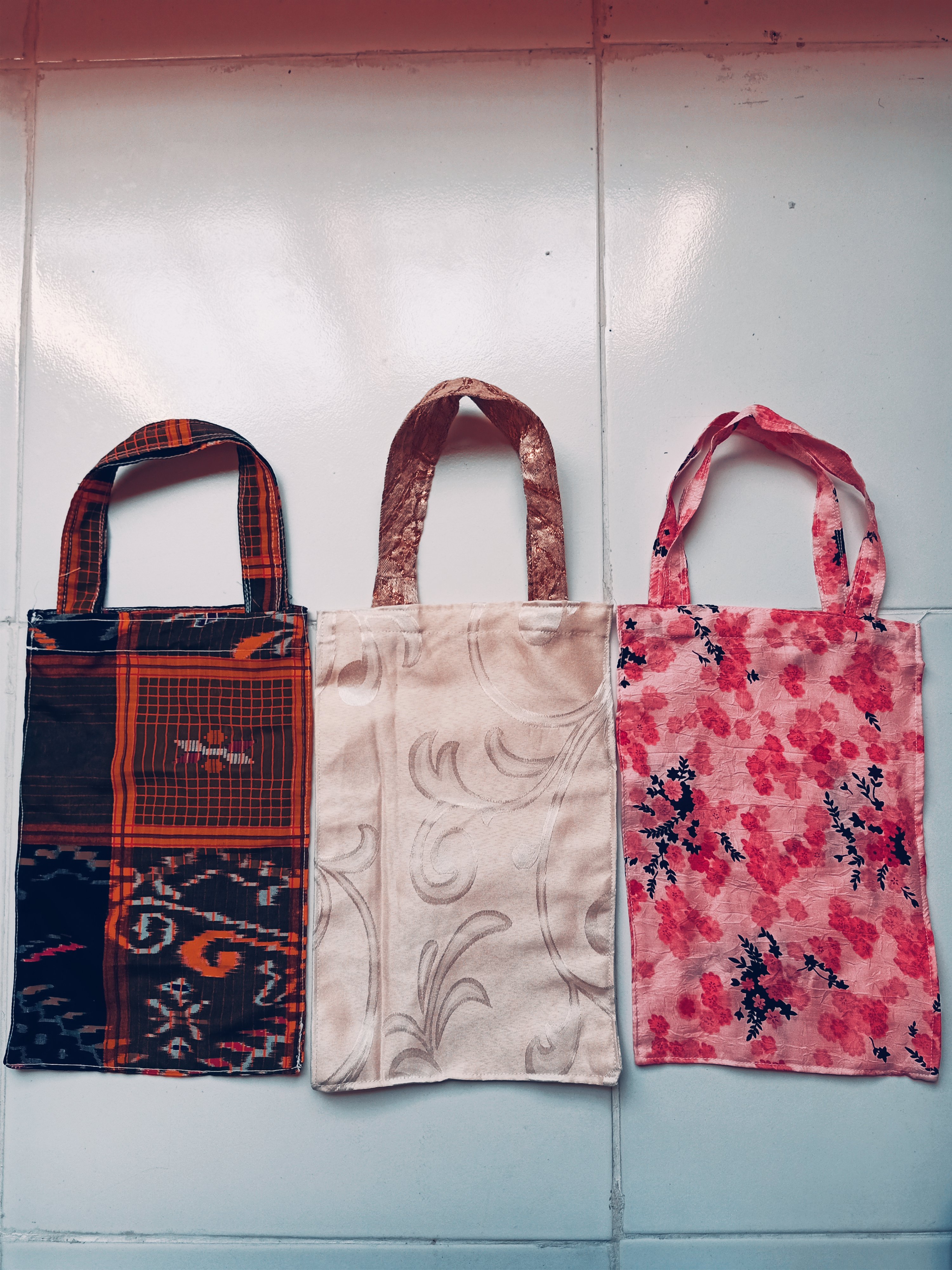
The Anambas Government has nothing but good things to say about our Waste Bank initiative.
What’s more, we’re in discussions with the local environmental agency about establishing Waste Banks in other villages within the Anambas region.
If you would like to know more about the Anambas Foundation projects or
to donate to any programme please click learn more.
An all-inclusive experience, redefined…At Bawah Reserve in Indonesia’s pristine Anambas...
Begin your day at Bawah Reserve with your choice from our Juice Butler service: fresh...
If you’ve noticed the beautifully patterned fabrics in your villa, you’ve already...
Ready to make a splash?For guests who are both swimming-fit and up for a challenge,...
Welcome to the thermal contrast therapy facility at Aura Sanctuary at Bawah Reserve,...
Planning your dream private island holiday in Indonesia? Here at Bawah Reserve, we...
3 ways to repost or use our Instagram Reels
We love that you want to share a little...
2024 wellness trends were exciting for sure, but it keeps getting better! The top...
A new subtle yet powerful trend - that of being “demure” and “mindful” - has been...
When we think of bees, honeybees often come to mind. However, at Bawah Reserve, a...
In the heart of Southeast Asia lies a hidden gem that promises a retreat into nature,...
It’s safe to say that if you ask someone to name a tropical island destination, they will...
As we step into 2024, the world of well-being is teeming with transformative trends that...
2 years ago for Earth Day 2022, we created 10 sincere pledges for investing in the planet...
Starting to plan your dream wedding? Some couples have a clear idea of their perfect...
We are often asked about the best time of year to schedule a trip to Bawah Reserve.Which...
Our faraway paradise is well worth the journey and there are many ways to get to Bawah,...
© Bawah Reserve 2024. Anambas. Riau Islands. Indonesia
leave a comment